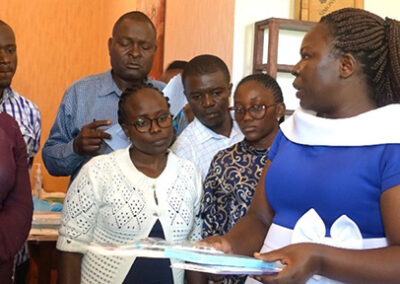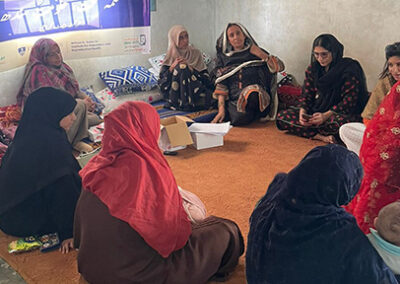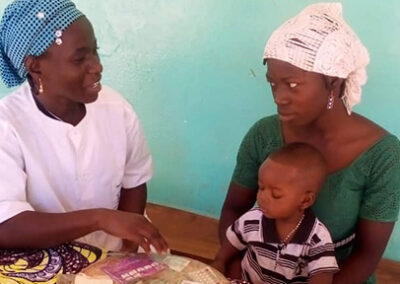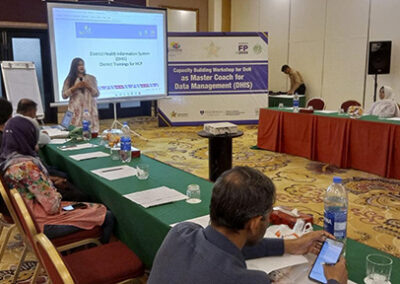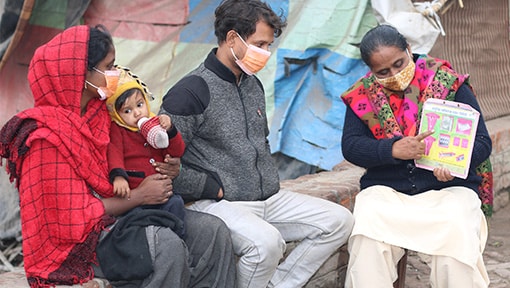
A couple receives counseling from an Accredited Social Health Activist (ASHA).
A recent article in Global Health: Science and Practice explores how The Challenge Initiative’s (TCI’s) tailored family planning programs involving community health workers can improve contraceptive access for young first-time parents (FTPs) in India. TCI’s high-impact practices and other interventions are crucial for addressing family planning needs among first-time parents and ensuring sustainable development.
Young married women in Uttar Pradesh, India, face substantial family planning challenges, often due to social norms and inadequate access to services. Additionally, government family planning initiatives have traditionally overlooked first-time parents, leading to high unmet needs and early pregnancies. However, TCI’s recent efforts have aimed to integrate specific services for these couples into existing family planning programs.
TCI, led by Population Services International (PSI) India in collaboration with the National Health Mission (NHM), engaged 20 cities in Uttar Pradesh from October 2017 to June 2020. Five of those cities (Allahabad, Firozabad, Gorakhpur, Saharanpur and Varanasi) also received additional support to improve adolescent and youth sexual and reproductive health (AYSRH) services – specifically for first-time parents aged 15-24 years.
In those five cities, TCI coached and mentored community health workers – known as Accredited Social Health Activists (ASHAs) – in providing information and counseling on family planning and healthy birth spacing with a particular focus on first-time parents. The study found that use of modern contraceptives among first-time parents in the five cities was higher when compared with non-pilot cities. In the pilot cities, 39% of first-time parents were using modern contraceptives, while in non-pilot cities, the rate was 32%. This difference was statistically significant (P<.05).
The study underscores the effectiveness of engaging community health workers in improving family planning access for young first-time parents. Facility-based providers’ training also contributed to better service provision and modern contraceptive adoption. Scaling up these interventions nationwide could significantly impact family planning outcomes across the region, necessitating continued government support and resource allocation.
Further research will assess the feasibility of replicating these interventions in other settings and comprehensively define first-time parents’ specific family planning-related needs and challenges. Long-term studies can provide valuable insights into sustained family planning utilization and its impact on the well-being of these families.
The initiative in Uttar Pradesh highlights the importance of tailored family planning interventions for young first-time parents and the role of community health workers in facilitating access to modern contraceptives. By prioritizing these specific family planning needs and integrating them into existing programs, policymakers can address critical gaps in service delivery and contribute to improved reproductive health outcomes among young couples. The authors stated:
This study further highlights that young FTPs require contraceptives other than sterilization, a need that is often overlooked both by government programs and health providers themselves in India. Greater uptake of modern contraceptives among young women may be achieved when an intentional focus on FTPs is added to the functional FP program.”
“Engaging Community Health Workers to Enhance Modern Contraceptive Uptake Among Young First-Time Parents in Five Cities of Uttar Pradesh” was written by: Mukesh Kumar Sharma, Emily Das, Hitesh Sahni, Jessica Mirano, Kate Graham, Abhishek Kumar, and Clea Finkle.

